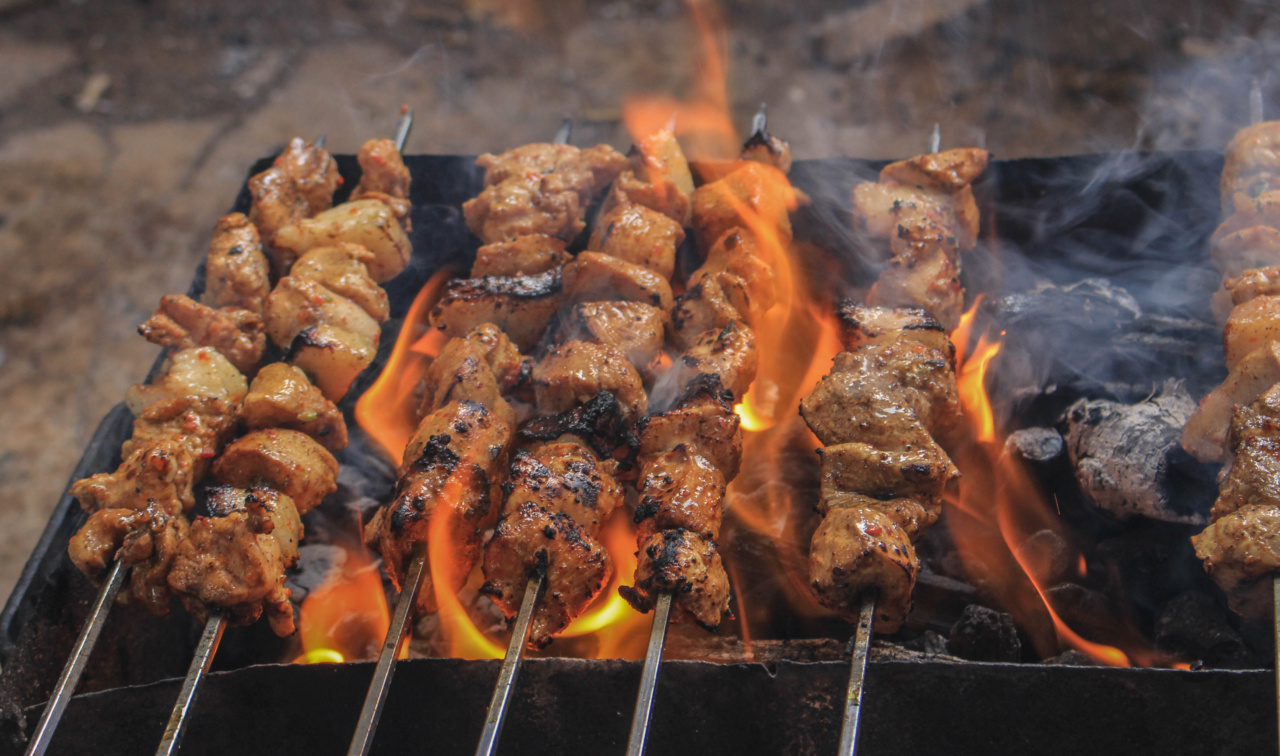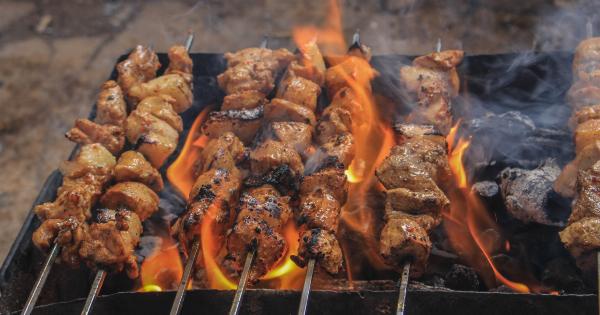Summertime is often synonymous with outdoor cookouts, where the tantalizing aroma of sizzling burgers and perfectly grilled vegetables fills the air.
Grilling over charcoal has long been a popular cooking method, but recent research has shed light on the potential health risks associated with this traditional cooking technique. Several studies have found a direct link between charcoal cookouts and respiratory illnesses, raising concerns among health professionals and prompting a closer look at the dangers of grilling with charcoal.
The Science behind Charcoal Grilling
Charcoal grilling involves the use of briquettes or lump charcoal as a heat source to cook food. The process of burning charcoal generates smoke, which contains a complex mixture of gases and tiny particles.
When this smoke is inhaled, it can have detrimental effects on the respiratory system.
When charcoal burns, it produces various chemicals, including polycyclic aromatic hydrocarbons (PAHs) and volatile organic compounds (VOCs).
These substances are known to be highly toxic and have been linked to an array of health problems, including respiratory illnesses.
The Risks of Charcoal Smoke Inhalation
1. Respiratory Infections: Inhaling charcoal smoke can increase the risk of developing respiratory infections. The fine particles present in the smoke can irritate the respiratory tract, making it more susceptible to infection-causing pathogens.
2. Asthma and Allergies: Charcoal smoke contains allergens that can trigger asthma attacks or exacerbate existing respiratory conditions. Asthmatic individuals and those prone to allergies should exercise caution when exposed to charcoal grill smoke.
3. Lung Cancer: The PAHs present in charcoal smoke are potent carcinogens. Prolonged exposure to these chemicals increases the risk of developing lung cancer. The risk is particularly elevated in individuals who regularly participate in charcoal cookouts.
4. Chronic Obstructive Pulmonary Disease (COPD): Chronic exposure to charcoal smoke can lead to the development of COPD, a group of lung diseases that cause breathing difficulties.
COPD is often progressive and irreversible, further highlighting the importance of avoiding prolonged exposure to charcoal smoke.
Minimizing the Risks
While the risks associated with charcoal cookouts cannot be entirely eliminated, there are several precautions individuals can take to minimize exposure and safeguard their respiratory health.
1. Proper Ventilation: It is essential to ensure adequate ventilation when grilling with charcoal. Grilling in open spaces or well-ventilated areas helps to disperse the smoke and reduce inhalation risks.
2. Distance: Maintaining a safe distance from the grill while it is in use can help reduce exposure to harmful smoke. Standing upwind or using a fan to direct the smoke away from gathering areas can also be effective.
3. Precook Foods: Precooking foods before placing them on the grill can shorten the cooking time and reduce the overall exposure to charcoal smoke.
4. Use a Gas Grill: Consider switching from charcoal to gas grills, which produce fewer harmful emissions. Gas grills offer a safer alternative without compromising the joys of outdoor cooking.
5. Clean the Grill: Regularly cleaning the grill helps remove buildup and reduces the production of harmful smoke. A clean grill ensures healthier and safer cooking.
The Importance of Awareness and Regulation
Given the potential health risks associated with charcoal smoke inhalation, raising awareness about the dangers and advocating for stricter regulations is crucial.
1. Public Health Campaigns: Governments and health organizations should initiate public health campaigns to educate the public about the risks of charcoal cookouts.
Promoting safer cooking practices and highlighting the importance of respiratory health can help minimize exposure.
2. Warning Labels: Products used for charcoal grilling, such as charcoal bags and grill accessories, should display clear warning labels about the associated health risks.
This serves as a constant reminder to grillers and raises awareness among consumers.
3. Enhanced Regulation: Governments can play a pivotal role in regulating the manufacturing and selling of charcoal products. Implementing stricter emission standards and monitoring the production of charcoal can help reduce the toxicity of the smoke.
Conclusion
Charcoal cookouts have long been a beloved tradition, but the potential health risks should not be overlooked.
The link between charcoal grilling and respiratory illnesses is a cause for concern, necessitating measures to minimize exposure and promote safer alternatives. By following the recommended precautions and advocating for increased awareness and regulation, individuals can continue enjoying outdoor cookouts while safeguarding their respiratory health.































